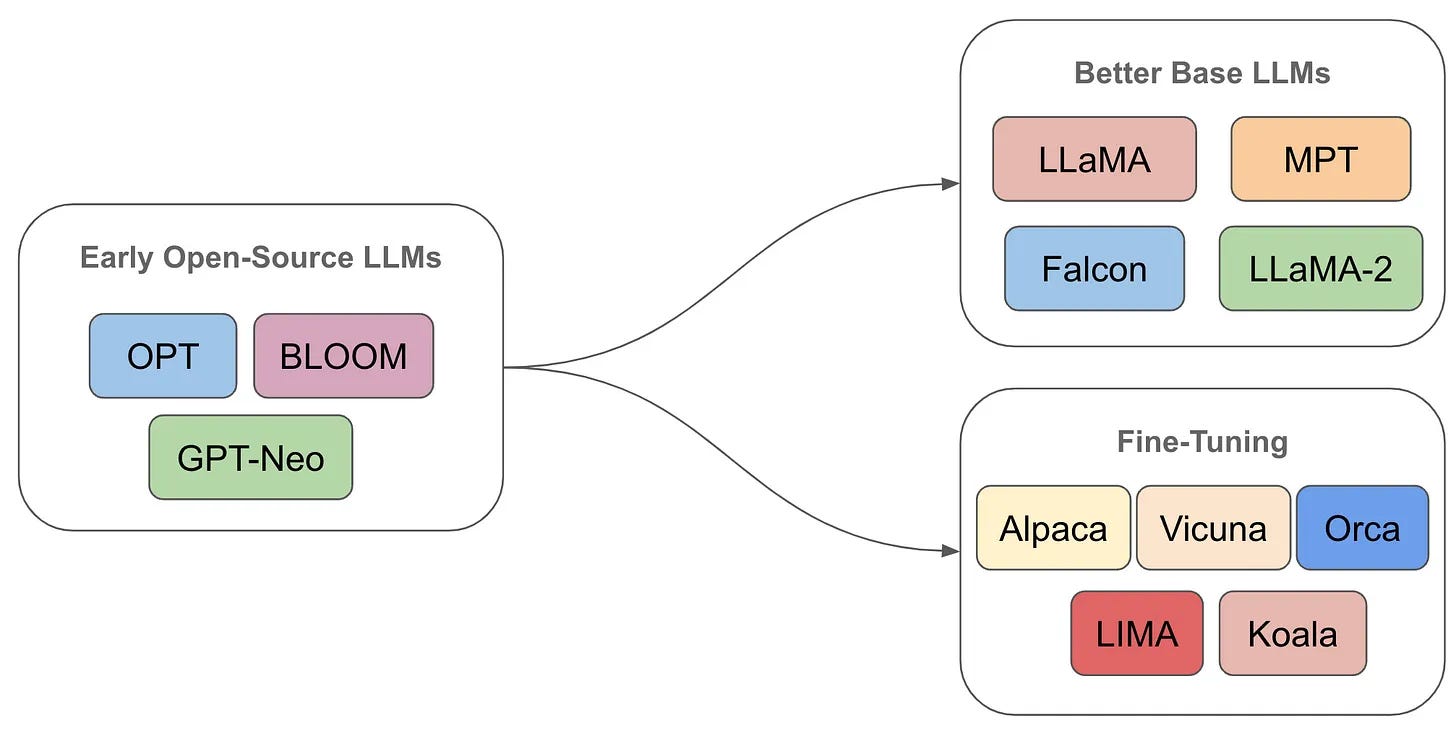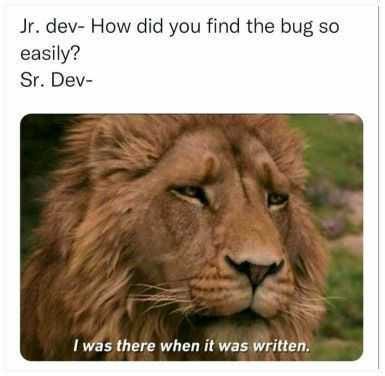Notes from a CTO #10: Self-Discipline, History of Open-Source LLM, and Blame Game
Reflections on Self-Discipline, Tracing the Open-Source LLM Journey from GPT-Neo to LLAMA-2, and Pursuing Peace of Mind.
1. Thought of the Week
This week, let's discuss only one thing that matters for your success: self-discipline.
Rushabh and I frequently review our hiring decisions, examining both our best hires and those where we made mistakes. We ponder what distinguishes star performers from average ones, or those we had to let go. One common trait among star performers is their self-discipline, self-motivation, and attention to detail. Of all these traits, self-discipline stands out the most. If someone is self-disciplined, they usually (but not always) have the other two.
I've also observed that these self-disciplined individuals often possess a strong sense of responsibility. They take ownership of their projects and their outcomes. If something goes awry, they don't search for excuses; they seek solutions. If someone asks me what I did at Kaymu, Everjobs, and do at Docsumo, my answer is, "I get shit done without excuses." This is one skill set everyone should have.
As a founder, having good discipline is crucial in our lives. It can manifest in simple things like leading by example, maintaining a good ClickUp ticket (or Jira ticket), following up on tasks for which you've given a deadline to a client or employee, or keeping your word.
One drawback of being disciplined is that when others aren't, it can be frustrating. Here's a saying I have at Docsumo:
I won't fire anyone at Docsumo for a mistake. Mistakes are acceptable as long as they aren't repeated and learned from. If they are repeated, it ignorance not mistake, which is lack of discipline. However, I will let people go if I have to repeat the same instructions over and over.
Does this mean I'm always right? Absolutely not. You can always question the process, but before you do, try it yourself for at least a month and come up with a better system. You need to know the rules to break them. Another thing to remember is to respect what came before you. Things are the way they are because there might be a lot of background information you're unaware of. Giving it a few weeks can help you understand.
Being disciplined also aids in faster root cause analysis since you've followed a process and have a record of it. You can review it and pinpoint the cause, rather than just applying surface-level solutions, which might create more problems than they solve.
Being disciplined means taking consistent actions towards your goals, even when faced with challenges or distractions. It's about setting clear boundaries for oneself and sticking to them, regardless of external pressures. While skills and talent are essential, it's the self-discipline that often determines the trajectory of success. It's the bridge between goals and accomplishments, dreams and reality. As we continue to grow and evolve at Docsumo, we prioritize self-discipline, not just as a trait but as a core value.
2. Podcasts/Essays
Here is a article that I found interesting on deep learning. It's a three-part series but worth the read
The History of Open-Source LLMs:
These are some of the best series on the evolution of LLM from GPT-Neo to LLaMA-2.
3. Interesting links
Repos:
Autolabel: One of the most exciting things about the LLM model is the opportunity to label data for supervised training. I'm thrilled by it.
Devpod and Hocus: I'm a big fan of cloud IDEs like Gitpod and GitHub CodeSpaces. Here's a similar setup that's open-source.
Supertokens: Authentication is one of the most critical steps in building an app, and for enterprise APIs, options like SSO and 2FA are essential. If I had to rebuild Docsumo, this is one thing I wouldn't build from the ground up.
Dify: I am excited and curious about the LLM model. I was always convinced, especially when I used ChatGPT for the first time, that certain tasks no longer requires human intervention. Just as no-code platforms are lifesavers for specific tasks, the LLM will have a similar impact. Dify is an easy way to test that.
For more, follow me on Github: bkrmdahal
Articles:
On Becoming a VP of Engineering, Part 1: The Path to VP: Real leaders are measured by the number of leaders they can produce. The same is true for managers. I always strive to bring out the best in people; my job is to help individuals discover their own strengths. It's easier said than done, but I do what I can within the capacity I have.
Open challenges in LLM research: I recently wrote an article on this topic, but there's another one that delves deeper and is more technical.
Flywheel at Atlassian: As we have hired more senior people on the team, we are looking for a framework to align the core team toward the same company goal, and this seems like an interesting framework to couple with the OKR framework.
Blogging Myth: I have always procrastinated on writing blogs. This newsletter also gets delayed time and again, and my blog, rpy3.com is always under construction. Here's a blog from one of my favorite authors on what is myth and reality to get started.
4. Quotes/ Books
A cucumber is bitter. Throw it away. There are briars in the road. Turn aside from them. This is enough. Do not add, "And why were such things made in the world?"
- Meditation by Marcus Aurelius
My philosophy in life has always been, “don't blame anyone,” and the above quote truly captures it. At the end of the day, it's your life and your mind. Why would you want something to occupy the space there? Here's the story of 'Two Monks and a Woman' that I always share with my close circle every time they complain about someone or something.
A senior monk and a junior monk were traveling together. At one point, they came to a river with a strong current. As the monks were preparing to cross the river, they saw a very old woman also attempting to cross. The old woman asked if they could help her cross to the other side.
The two monks glanced at one another because they had taken vows not to touch a woman.
Then, without a word, the older monk picked up the woman, carried her across the river, placed her gently on the other side, and carried on his journey.
The younger monk couldn’t believe what had just happened. After rejoining his companion, he was speechless, and an hour passed without a word between them.
Two more hours passed, then three, finally the younger monk could contain himself no longer, and blurted out “As monks, we are not permitted a woman, how could you then carry that woman on your shoulders?”
The older monk looked at him and replied, “Brother, I set her down on the other side of the river, why are you still carrying her?”
Our Slack channels have a great collection of memes.
That’s it for this edition. I hope you find it useful.
Best,
Bikram Dahal
P.S If you learned something new today, please share “Notes from a CTO” with your friends and spread the love. ✌🏻



